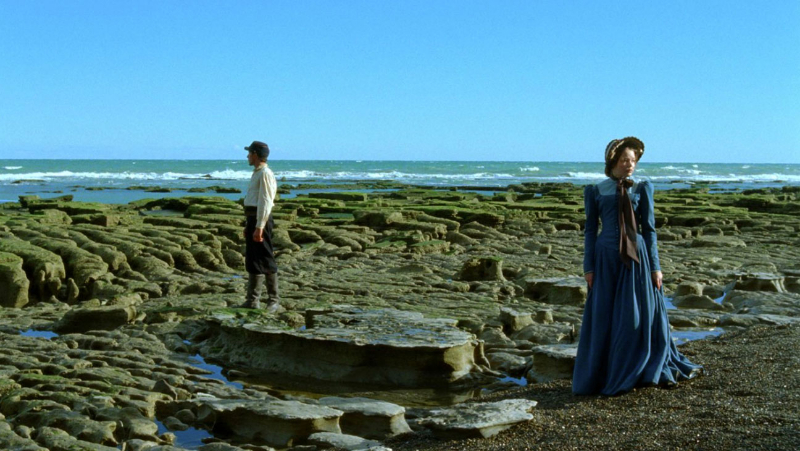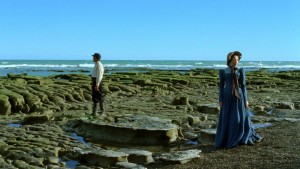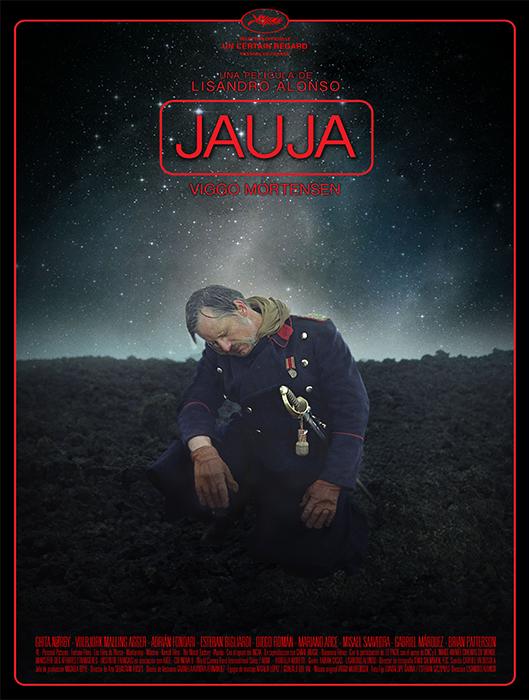Jauja

Former students who are versed in the languages of critical theory and semiotics have a blinkered tendency to detect oppression and profundity everywhere. An abundance of “meaning” results in films like Lisandro Alonso’s Jauja being labelled as existential or harbouring a clandestine  commentary on colonial guilt. Too often these conclusions are founded upon trivialities stretched to fit ideological obsessions. Incentives to complicity dress the emperor in conspiratorial tinfoil are strong. The status-seeking nature of finding gold in grot has become the zeitgeist’s group-think.
commentary on colonial guilt. Too often these conclusions are founded upon trivialities stretched to fit ideological obsessions. Incentives to complicity dress the emperor in conspiratorial tinfoil are strong. The status-seeking nature of finding gold in grot has become the zeitgeist’s group-think.
In Jauja, Alonso and his writer Fabian Casas start the film at a ragged outpost somewhere in South America. The audience is introduced to a Danish soldier (Viggo Mortensen), his daughter, and a band of Hispanic military men. Once his daughter elopes with a young soldier, the film’s narrative unravels. The audience is left to endure an uneventful bore of a film. It even discards its one potential curio: a confrontation with the mythically unhinged Zuluaga, a legendary soldier beating a path into the wilderness.
Jauja casts a weak shadow on the films it aspires to be. Alonso half-heartedly attempts to mimic Alejandro Jordorowsky’s surrealist Western humour, barely mustering a chuckle. Connoisseurs of anti-narrative naval gazing audaciously compare Alonso’s work to Andrei Tarkovsky. The Russian’s films might have been glacially paced and lightly sprinkled with dialogue, but their symbolism was pregnant with genuine meaning. To conflate lacklustre imitation with genuine artistry is a lazy error committed all too frequently.
Some of Juaja’s personable touches are interesting. The boxy aspect ratio of its round-edged screen, the rich hues of its primary colour filters, even its episodic nature, point to an appreciation for early film. However, static picturesque shots and minor references to a bygone era don’t make for a pneumatic watch. The pretense of existential levity is extremely grating. Ingmar Bergman’s films weren’t existentially weighty because of his visual flair and considered rhythm. Wild Strawberries and The Seventh Seal were packed with imagery and core themes relating to the burden of freedom and man’s relationship to finitude, all entirely missing here.
After 50 minutes or so, tedium sets in and the whole experience becomes torturous. It is a typical sleight of hand from the pseudo-intellectual to convince the public that something lies deeper here. Jauja is a truly alienating experience.
Mark Warburton
Jauja does not yet have UK release date.
Watch the trailer for Jauja here:

























Facebook
Twitter
Instagram
YouTube
RSS